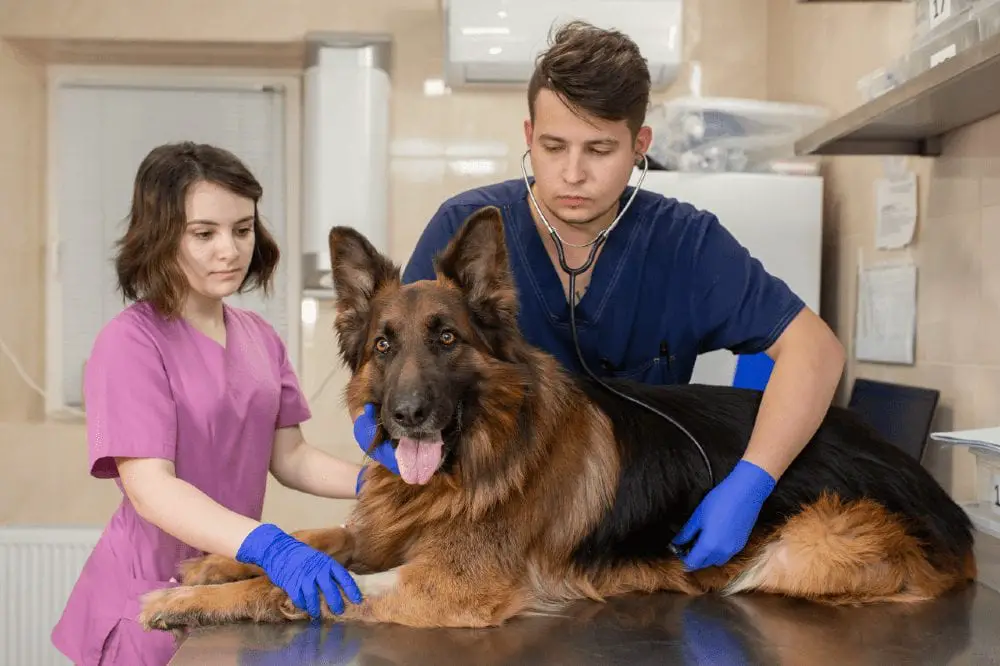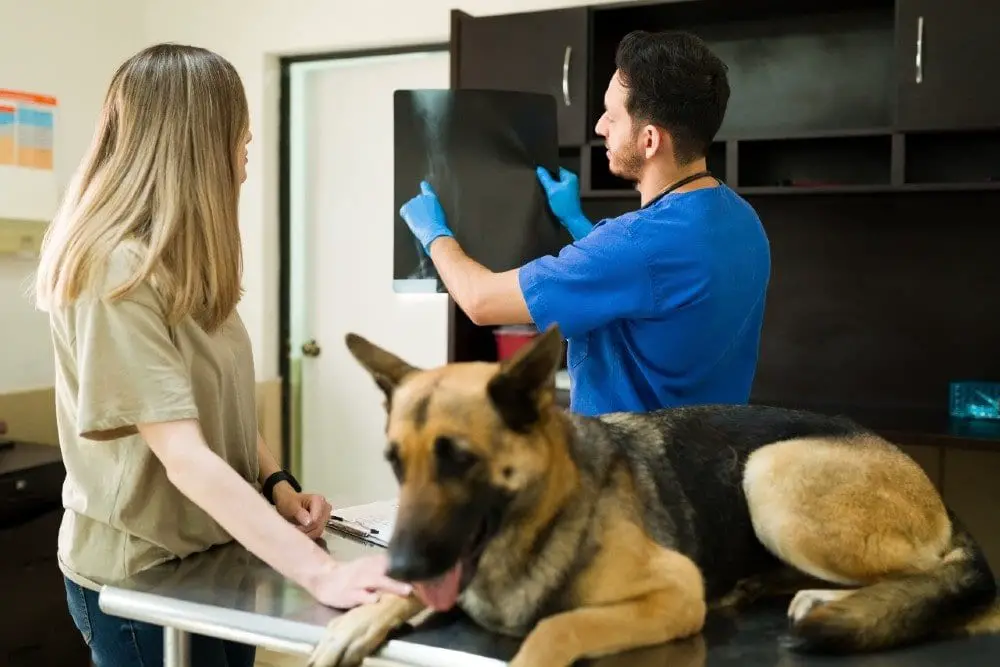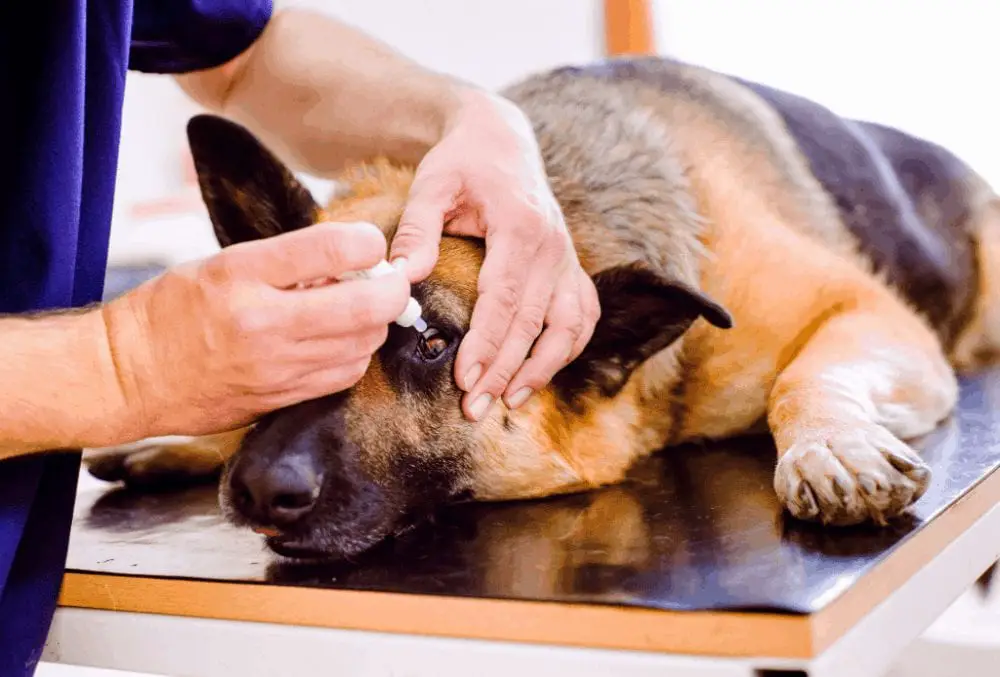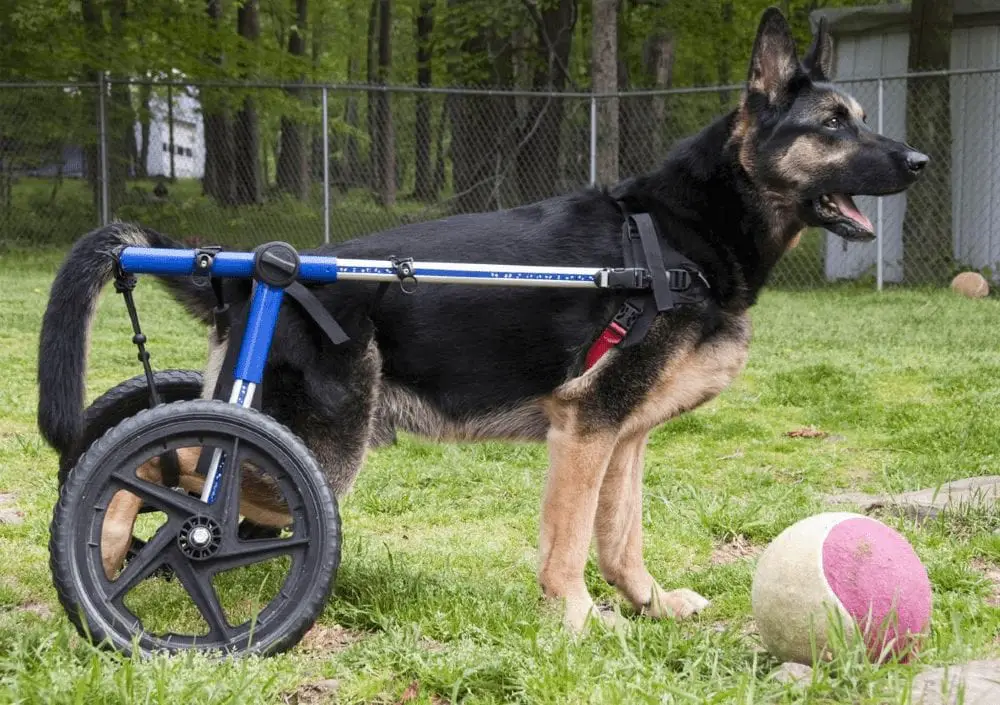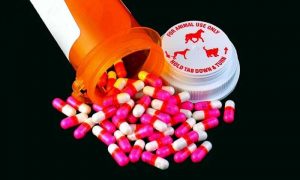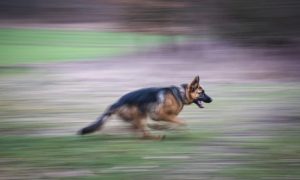All pets are bound to have health issues the older they get at some point in their lives. Many variables come into play with the type and severity of the problem.
German Shepherds are no exception to the rule. However, there are preventive measures you can take to avoid some conditions potentially or, at the least, catch the condition before it can progress.
Joint issues are a concern for German Shepherd health, but there are several other diseases and conditions that owners need to be aware of.
Hip Dysplasia
Hip and elbow dysplasia is common in several medium to large breeds of dogs. In most cases, this condition is caused by a genetic predisposition.
Hip dysplasia happens when the joints of the hip or hips are loose in the sockets. Cartilage in the joints gradually breaks down, and osteoarthritis becomes an issue with pain, swelling, and limpness symptoms.
X-rays are the best way of knowing how severe the dysplasia is and what treatment is best. Surgery may be an option, but sometimes medication can make all the difference for a milder form of hip dysplasia.
In overweight dogs, losing weight can help take a lot of pressure off of joints. Compression wraps and limiting exercise, especially on hard surfaces where slipping may occur, can also alleviate the symptoms.
While limiting exercise is recommended, that doesn’t mean all movement is damaging. Physical therapy can increase mobility and potentially lower the chance of a future injury.
Perianal Fistulas
Perianal fistulas are most common in German Shepherds but can occur with any large to giant dog breed.
This condition is caused by open draining tracts that can worsen over time and eventually turn into sores. Typically, you will see fistulas that appear as pinholes.
Dogs that have reoccurring issues with straining and swollen or infected anal glans are more likely to develop this condition since the draining tract’s opening is usually caused by a former infection.
Most cases are curable, although they often will take some time to resolve. Medication is one treatment method such as antibiotics to treat or prevent infection, immunosuppressives, or topical treatments. In some cases, cryotherapy can help as well.
German Shepherd Health and Osteoarthritis
Hip dysplasia isn’t the only joint issue to watch out for in German Shepherd health. Osteoarthritis is a chronic joint disease caused by the deterioration of cartilage, leading to limb dysfunction and pain.
Osteoarthritis is not uncommon in any breed’s senior dogs, much like arthritis in humans can happen at any stage in life but is more common in the elderly.
Large breed dogs like German Shepherds are at a higher risk for osteoarthritis at a younger age due to the wear and tear on joints.
Osteoarthritis symptoms are stiffness, lameness, limping, slow to rise, tender to the touch, not wanting to jump in the car or climb steps, abnormal gait, a loss of interest in food and play.
Most people assume that with age, their companion is simply less active and taking things slower. It’s best to have a vet take a look to rule out osteoarthritis.
There is no cure for osteoarthritis, but much like hip dysplasia, there things to manage the condition like medication and physical therapy.
Pannus or German Shepherd Dog Keratitis
Pannus is unfortunately common in German Shepherd health and affects both eyes and can cause total blindness.
It is caused by inflammation of the cornea and most often occurs at about the age of two. The first and most noticeable symptom is the pink or red membrane at the corner of one or both eyes.
This condition isn’t curable, but it can be treated with medicated eye drops. It’s important to catch this as early as possible to avoid any scarring.
Progressive Retinal Atrophy
This condition is similar to Pannus. It usually appears around the age of two and unfortunately, is rather progressive in degeneration and has no cure.
The best way to eliminate it from spreading within a breed is to have selective breeding to prevent passing on this hereditary trait.
Degenerative Myelopathy
Degenerative Myelopathy occurs mainly in German Shepherds and is a genetically inherited disease.
Stiffness, difficulty walking or getting up, rear feet dragging and wobbling or swaying in the back end are all signs of this condition.
Degenerative Myelopathy is the canine version of multiple sclerosis or Lou Gehrig’s disease. There is no cure for Degenerative Myelopathy, but it can be managed to make your dog more comfortable with medications, alternative holistic herbs and acupuncture, hydrotherapy, and assistive equipment to prolong a dog’s quality of life.
Gastric Dilation Volvulus
Also commonly referred to as bloat in German Shepherd health, Gastric Dilation Volvulus is caused by the build-up of food or fluids to the point that the dog cannot expel anything.
It’s common for the stomach to twist, which can make the situation even worse. With the stomach being twisted, this organ’s entrance and exit are blocked and will shut down, causing a reduction in blood flow that can lead to a fast build-up of toxins.
This condition is different than many others. It’s not something that you can schedule an appointment for, but rather a life-threatening emergency that will most likely need surgery to correct.
Skin Allergies
One of the less severe conditions that can take a toll on German Shepherd’s health is skin allergies. There are three leading causes of skin allergies in dogs.
The first skin allergy is food. A reaction to food can cause changes in a dog’s skin and coat. Changing a dog’s food to a different protein source or a different brand may solve the inflamed and itchy problem.
Fleas cause the second skin allergy. Flea allergies can cause skin issues not only from their bites but from their excretion as well.
The third allergy source is inhaled dermatitis. Your dog may have an allergic reaction to grass, trees, seasonal flowers in bloom, or other things in the environment.
Allergic inhaled dermatitis can be reduced by avoiding whatever is causing it or medication if it’s unavoidable, such as pollen outside.
Thyroid Disorders
Although not very common, thyroid disorders are sometimes found in this breed. A thyroid disorder will be a lifelong issue, but it’s easy to treat and regulate.
Thyroid symptoms include changes in the coat, such as brittle or thinning hair.
Seizures and Epilepsy
Although not proven, it’s believed that a hereditary or genetic predisposition causes Epilepsy and seizures. The method of treatment will depend on the cause.
For those with Epilepsy, medication and periodic blood tests can help manage, reduce, and possibly eliminate seizures and convulsions.

